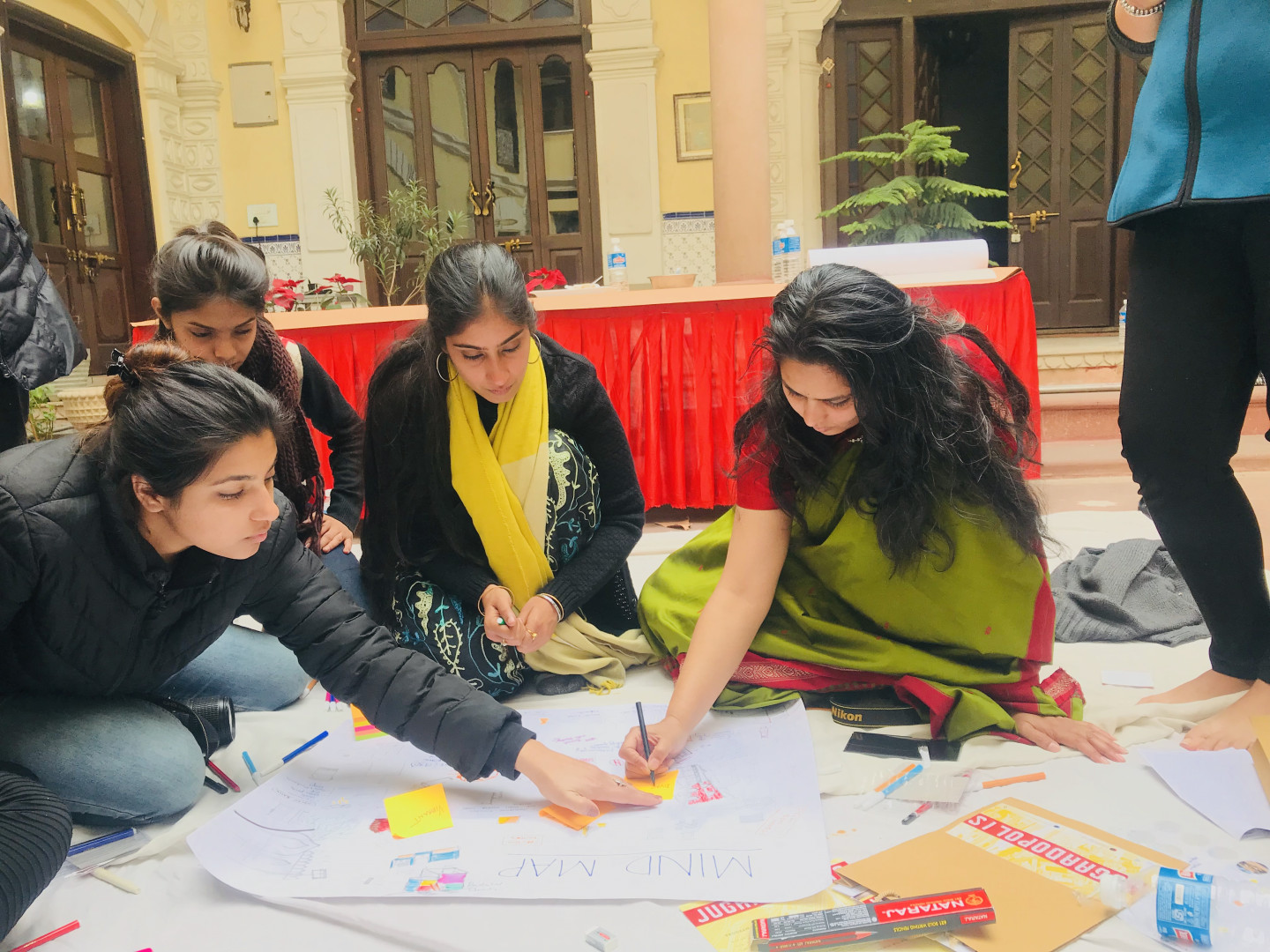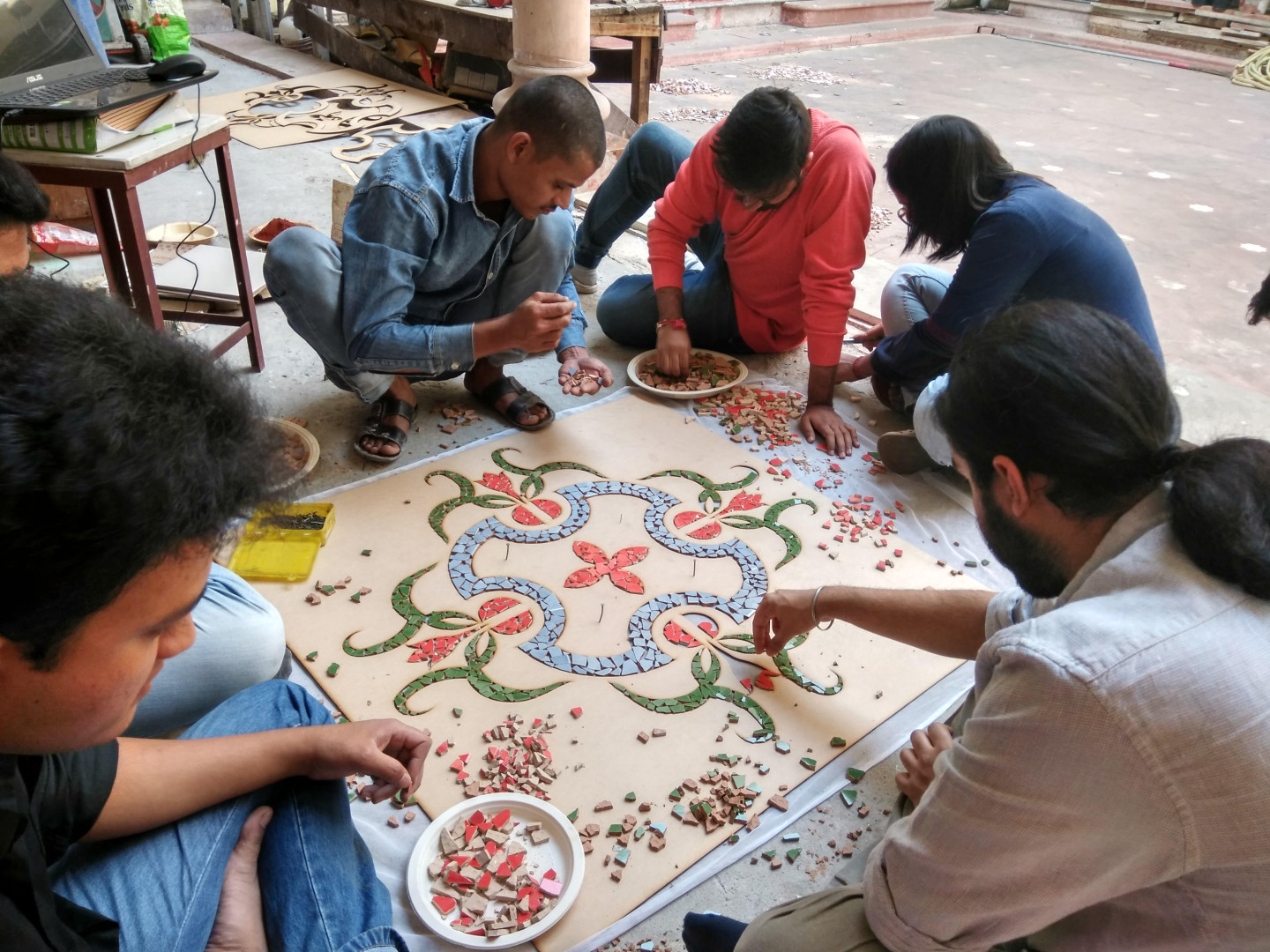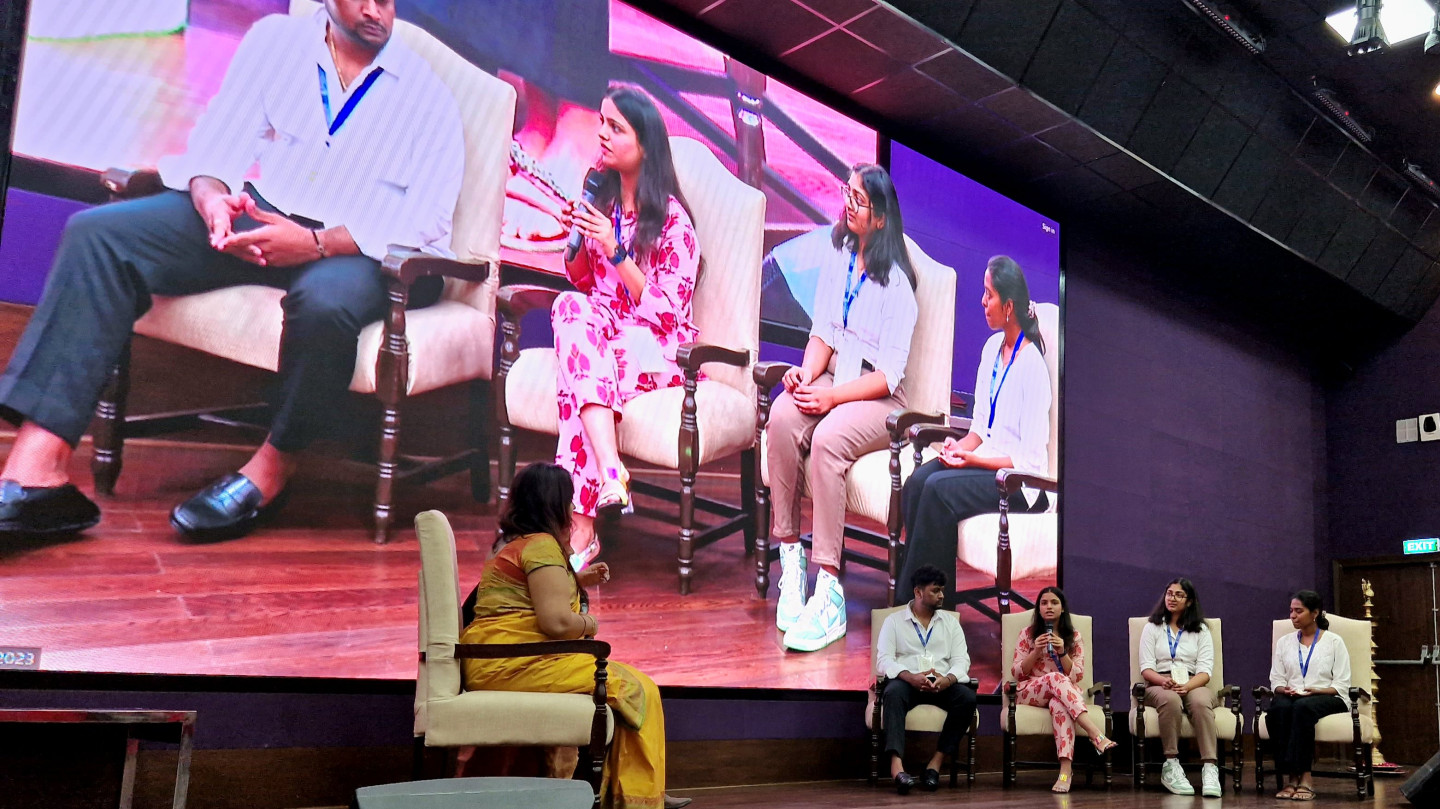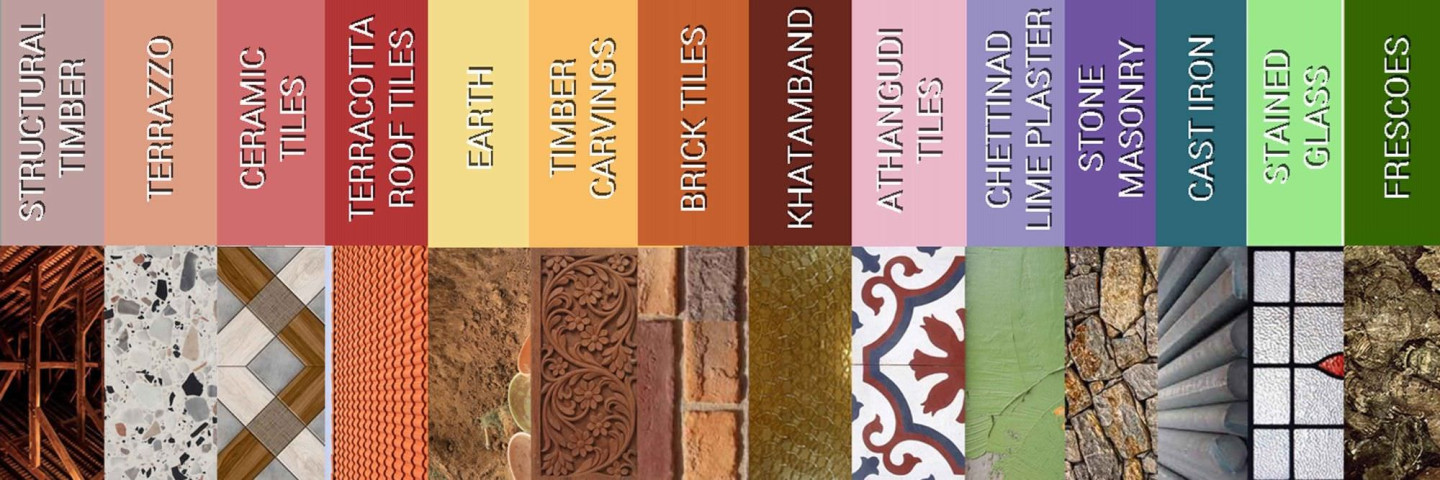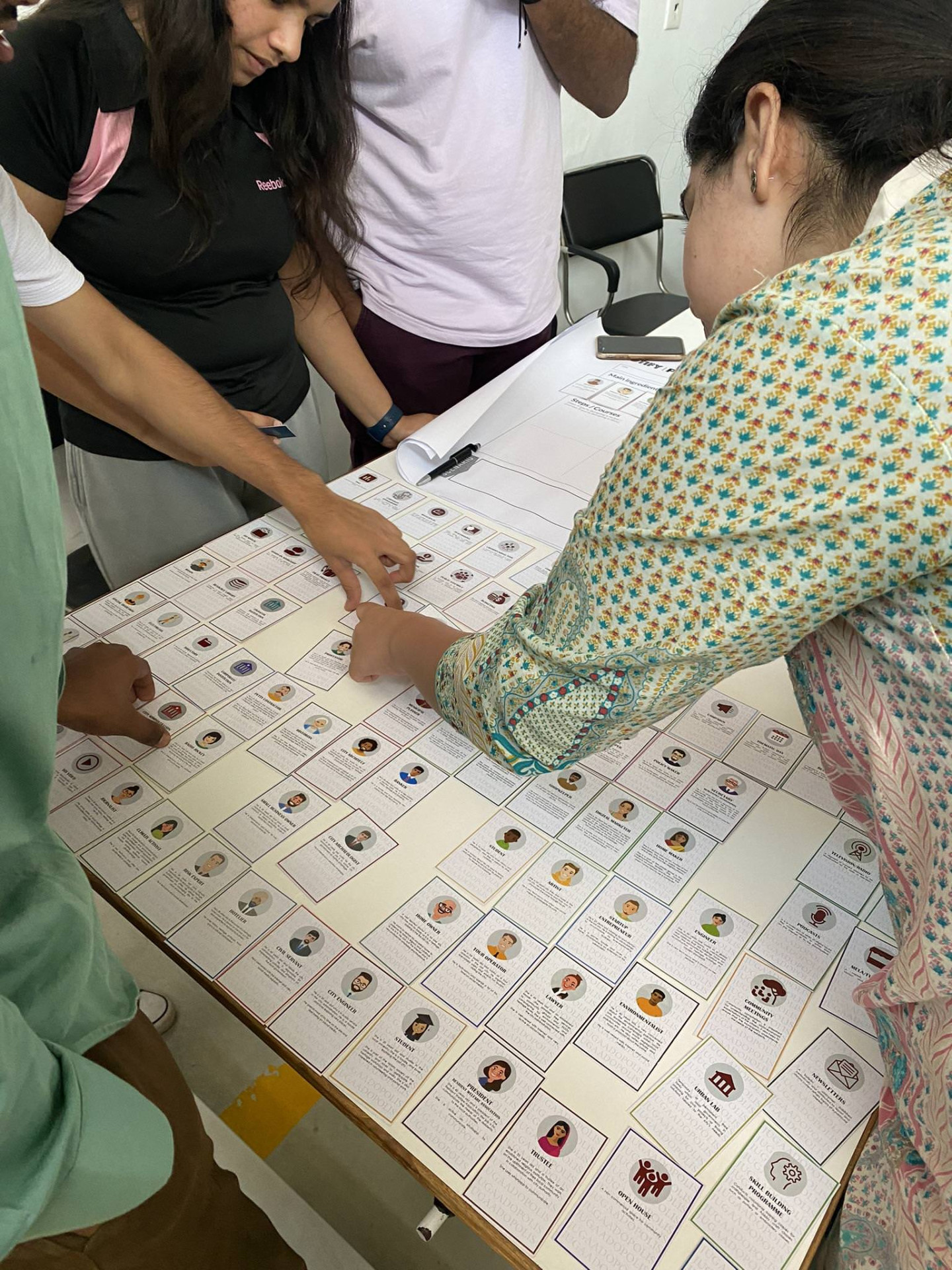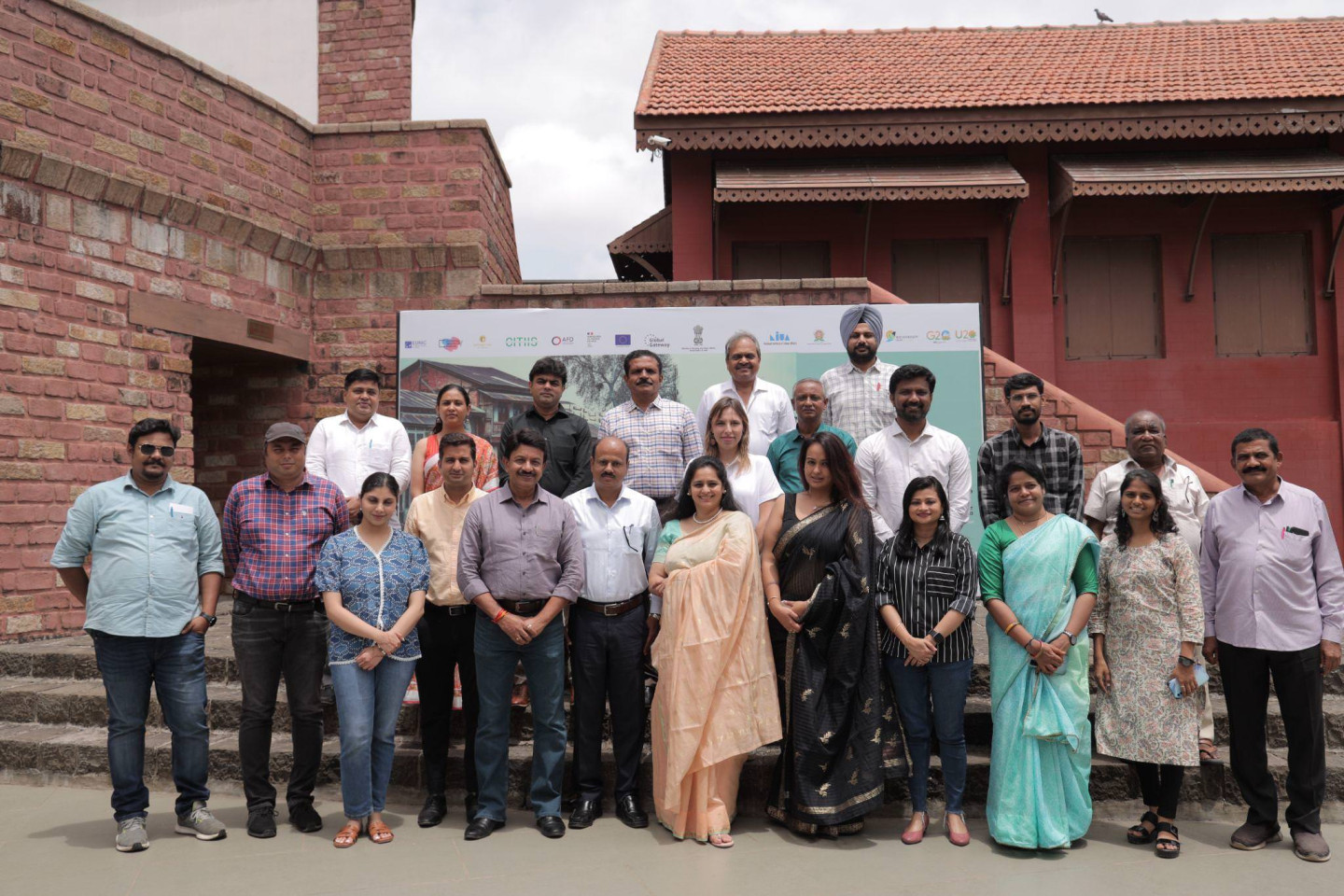Urban heritage conservation in India is particularly challenging: the lack of technical and financial resources, professional knowledge and application of traditional skills to restore and reuse old buildings has led to neglect, decay and dereliction in the urban environment. A two-level engagement is required, one with policy makers, another with local communities.
The Restoration Toolbox project, a collaborative initiative between Indo-European partners, embarked on an journey to create an accessible platform. The overarching aim was to provide a user-friendly space, reachable to a wide array of stakeholders, including professionals, craftsmen, policymakers, students, and entrepreneurs, all within the context of India. However, its vision lies in its universality, transcending geographical boundaries, and recognizing the global relevance of our work, with the potential for replication and adaptation in diverse societies facing similar challenges.
Heritage is everywhere - cities, villages and districts. However, people don’t know how to pass on the knowledge to the coming generations. Hence, The Restoration Toolbox is critical for the students, participants and delegates to have awareness that this platform is available for all types of people and the general public”
Meghavi Desai, Executive Engineer, Surat Municipal Corporation
Empowering and engaging citizens in heritage conservation
The participatory processes towards heritage conservation are seen as a tool to support stakeholder involvement and policy making built on a deep understanding of the Indian context. Developed on Decidim, which offers a stable, ethical, and modular architecture to build such a platform, backed by a strong international community maintaining its code and ethical compass, facilitating the sustainability of the Restoration Toolbox platform.
The project operates with an open definition of heritage, not limited to listed assets but also involving those buildings, complexes, and spaces that have a symbolic or practical significance for local communities. Diverse cases of cultural heritage communities will be connected through the online platform, which will be open to a diverse range of actors, which form the complexity of heritage communities, including residents, craftspeople, students, academics, civil society actors and local authorities.
The project exchanges and shares knowledge on open governance, financing models, Private-Public-People partnerships, reuse models, grassroots community development and holistic approaches to heritage and urban development. Partners will carry out training sessions and promote outreach, fomenting long-lasting and multistakeholder heritage conservation communities.
Towards heritage policy making influence
A beta version of the platform has been launched in Step 2 of European Spaces of Culture, to help citizens access technical knowledge, resources and professional advice to envision, collaborate and implement heritage projects. It provides an online space to ideate and take collective action to restore and reuse buildings and spaces that have community value. It also provides the civil society a tool to engage with the civic authorities to encourage and build bottom-up actions for heritage conservation in India. The platform experiments with new funding mechanisms such as crowdfunding as well as creates professional ties between heritage actors and local businesses, funders, etc.
The Restoration Toolbox provides an opportunity to promote repair and circularity. If you empower people to rethink preserving their heritage, they can find their own solutions.
Aishwarya Tipnis, initiator of the project
On the short term, the project aims to create a community of stakeholders in urban heritage conservation in India and Europe and to spreading awareness among citizens, institutions, stakeholders and relevant parties about the importance of being actively involved in cultural heritage conservation. The long-term goal however is to, by co-creating activities by these partners, encouraging and mainstreaming the use of the platform, publish results and methodologies with a global audience and thus, influence policy making on cultural heritage restoration and reuse in India.
Applying the Restoration Toolbox
Over the course of 2023, the project team undertook not only the further development of the platform and the Toolbox itself - partly done directly by students -, but also outreach to numerous partners in nine cities across India, teaming up with universities, municipalities and national authorities. Many of these partners have shown an interest to disseminate and use the Toolbox.
On 27 and 28 September, the Restoration Toolbox organised the International Conference on Enabling Conservation Through Digital Engagement, in collaboration with and hosted by O.P. Jindal Global University's Jindal School of Art and Archeology. The conference brought togetherlike-minded individuals, students, business owners, stakeholders, and experts came together to share insights and chart the way forward. It served as a platform for the exchange of ideas and best practices, fostering a sense of unity and collective purpose. However, the true measure of the project's success lies in its ability to inspire and educate, particularly among the younger generation.
During the conference, the results of the project were presented and situated in broader discussions about sustainability, repair, circular economy and Indian and global policies in these fields. Moreover, JSAA students who actively applied the Restoration Toolbox in both the classroom and field work, shared their experience and recommendations for its use.
The conference was followed-up by a stakeholder meeting, bringing together all key (Indiana and European) partners actively contributing to the project, as well as additional stakeholders vital for the sustainability of the project. The collaboration and generosity between the various partners was lauded and a key factor for the success of the project. Partners have been able to find complentarity to other partner's strengths, be it to bring in political support, experts and networks, or communication efforts to reach a wider audience.
The restoration toolbox put the citizens at the heart of restoration and encourage the support from architects, engineers, NGOs and local authorities. We hope that this first step will encourage cities to develop this methodology and disseminate it further.
Diane Bittar, Portfolio Manager - Urban and Water sector, Agence française de développement New Delhi.
One concrete result that stands out is the creation of 15 meticulously designed material manuals, crafted by Jugaadopolis in both digital and print formats. These manuals represent an invaluable resource, offering detailed information on a wide array of materials, from ceramic tiles to structural timber, stained glass to brick tiles, and stone masonry. They serve as a comprehensive guide, catering to a wide audience, from students to professionals.
The project’s storytelling extended to the visual realm, with two films produced by Jugaadopolis (see both on the right). The first film, "CHAIN REACTIONS," serves as a powerful trailer for the project, highlighting the pressing need for the Restoration Toolbox. It amplifies the voices of unsung heroes working in the field and builds a compelling case for the idea of restoration, reuse, and recycling. The second film, "Project Snapshot," delves deeper into the heart of the Restoration Toolbox concept. It sets the context for the project within the Indian landscape, exploring the key challenges and how the Restoration Toolbox effectively addresses them.
The traction that the project has generated has led to multiple conversations within the partners to take the project further. Some of these initiatives include:
- Upscaling the project to the ASEAN region. The results of this project were shared with the EUNIC clusters in Asia-Pacific during the regional cluster seminar in Hanoi (Vietnam) in October 2023 and there is a potential collaboration between the South Asian and ASEAN region based on the similarity of construction materials and techniques involved in the toolbox.
- Translation of the Restoration Toolbox website and manuals in regional languages for further accessibility of the platform.
- Capacity building with multiple stakeholders such as government organisations, NGOs and citizen groups as well as students.
- For future sustainability of the project depends on the local partners grounding the project and taking the lead in the future endeavours.
The Indo-European nature of the collaboration is further enhanced by the cooperation between the various EUNIC members and local partners.
